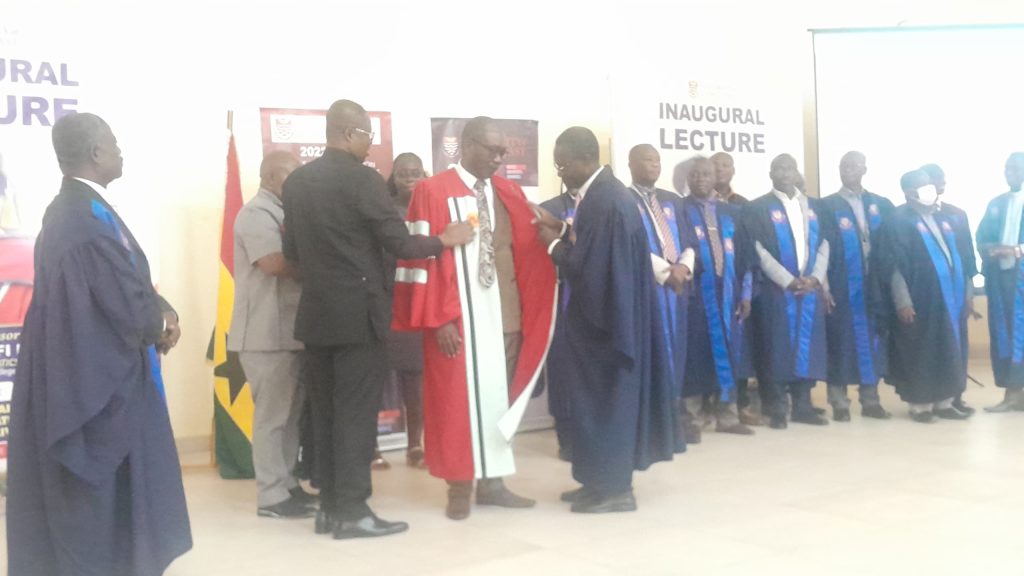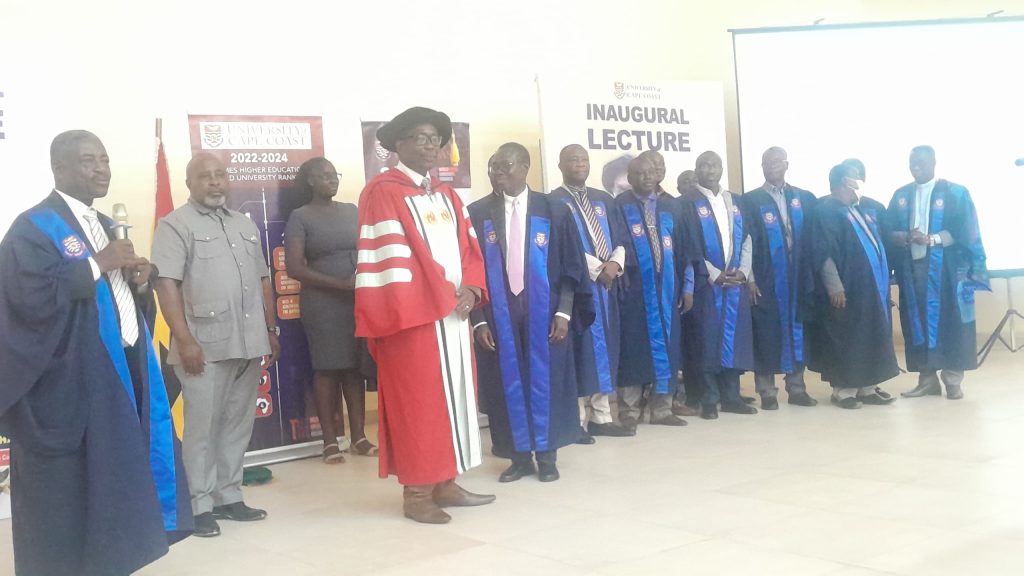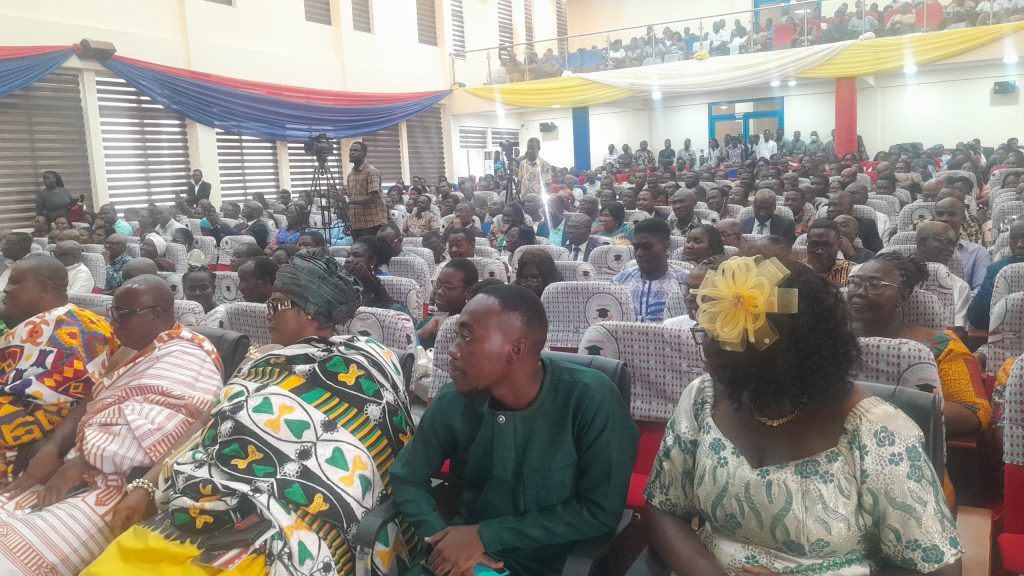By Prince Acquah / Victoria Agyemang
Cape Coast, March 29, GNA – Professor Ernest Kofi Davis, a professor of mathematics education, has proposed the development of a mathematics curriculum based on the socio-cultural realities and values of students to make it easy to build their mathematical proficiency.
He observed that mathematics was often taught out of context to students using foreign concepts, making it difficult for them to link those abstract concepts to their everyday realities, resulting in poor performances.

Professor Davis, who is the Provost of the College of Education Studies, University of Cape Coast (UCC), was delivering his inaugural lecture on the theme: “Sociocultural Issues: A Missing Ingredient in Mathematics Curriculum Development and Delivery in Ghana.”
He insisted that students’ mathematical competence should be built on what they already knew.
Citing his research, he was of the view that mathematics must be understood as a cultural object and must use relatable measurements and language to make an impact on students.
“If we want to train students who are relevant to the current demands of our 21st century, then the students will require adequate mathematical skills and otherwise they cannot survive the 21century demand,” he cautioned.
“To make the teaching and learning of Mathematics relevant to students from indigenous communities and sub-Saharan African countries that were once colonised, there is the need to appreciate the local aspect of mathematical knowledge, values and the local aspect of Mathematics pedagogy, and their implications for curriculum development and implementation,” he added.

He pointed out that Ghana’s curriculum was adopted blindly, even though research suggested that every culture generated its own mathematics which could be different from the “international Mathematics.”
Prof Davis said stakeholders paid very little attention to the social and cultural factors as well as the cognitive mode of students in the development and implementation of Mathematics curricula.
That approach, he noted, disabled the students’ abilities to develop the ideal mathematical proficiency.
“I argue that students who are labelled as weak and eventually excluded from formal education may be so labelled not because they are weak in Mathematics but because curriculum development and delivery systems continue to ignore and deny the existence of students’ everyday mathematical representations and practices,” he stressed.
Prof Davis added government’s agenda to modernise classrooms at the basic school level should transcend political generations for the classroom environment to be modelled to support modern approaches in teaching.
Prof Davis, one of Ghana’s premier professors in Mathematics, Education, was promoted to the professorial rank in 2018.

His areas of research interest include social and cultural issues in mathematics education and teaching and learning of mathematics content and is dedicated to promoting quality education through innovative approaches to curriculum development and delivery models, and is a strong advocate for reflective teaching.
He has received many awards and articles to his credit.
GNA